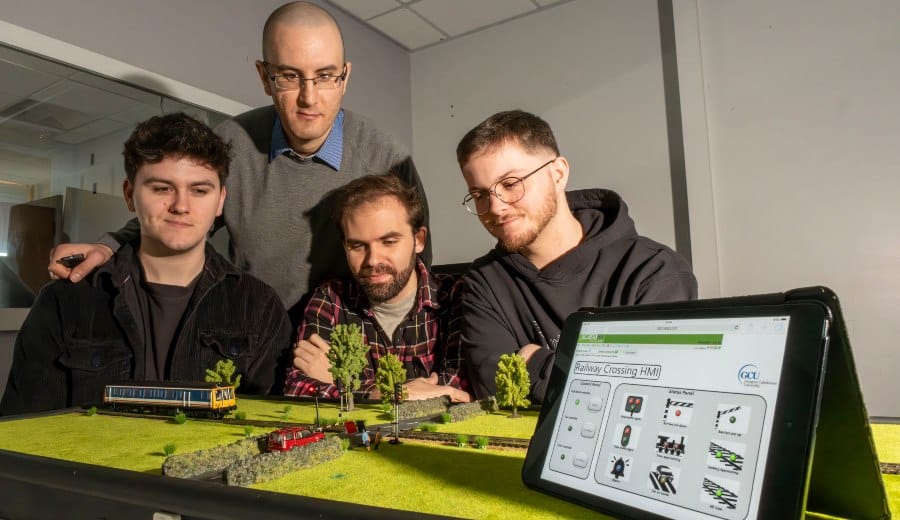Glasgow Caledonian’s rail network security project


James Thorpe
Share this content
Glasgow Caledonian University’s Cyber Security and Networking Department has developed a cybersecurity project with the aim of protecting Scotland’s critical infrastructure from cyber-threats.
As part of this initiative, academics and undergraduates have introduced a platform designed to prevent potential cyber-attacks on the country’s rail network.
Glasgow Caledonian’s project
Funded by the Smart Technologies Centre, the Glasgow Caledonian’s project features a model trainset controlled by microprocessors and monitored through a custom website.
The setup allows researchers and students to simulate cyber-attacks on essential systems like level crossings and train sensors.
Dr Salaheddin Hosseinzadeh, who is leading the project, revealed the platform’s mission: “Our students hack various elements of this model to see what would be possible in a physical environment.
“They can manipulate the level crossing barrier and warning lights, for example or manipulate sensors on the train that alert operators to obstacles in its path.
“The real world effects can range from inconvenient delays to mass casualties.”
“Cyber-attacks on worldwide critical infrastructure”
Given the recent surge in global cyber-attacks targeting critical infrastructure, exemplified by the Colonial Pipeline incident in Houston, US – Dr. Hosseinzadeh underscored the urgent need for robust cybersecurity measures: “The Colonial Pipeline attack left vast parts of the USA without fuel.
“That is just one example of many recent massive cyber-attacks on worldwide critical infrastructure. By using our testbed, our students can see, first hand, the effects of such an attack on a rail network.
“More importantly, having seen what is possible for hackers, the students then learn how to stop these attacks and make the network more robust.
“Therefore, the initiative not only provides hands on experience for budding cybersecurity experts but also serves as a vital research platform for developing innovative solutions to protect critical infrastructure.
“This is the only testbed of its type in Scotland. Efforts are now under way to document findings and methodologies for submission to a peer reviewed journal.
“Hone our skills”
Dr. Hosseinzadeh added: “Our story highlights innovation, collaboration and the advancement of cybersecurity education, offering potential inspiration for further development and collaboration within the sector.”
Dionysios Voutos, Glasgow Caledonian’s fourth-year Cyber Security and Networking student who helped build the testbed added: “From an educational point of view, this is fantastic.
“Students cannot experiment in a real life critical infrastructure network because of the potential for error.
“The testbed gives us the next best experience of putting into practice all that we have learned and allows us to hone our skills in a safe, but realistic, environment. It sharpens us to make us industry ready upon graduation.”
Efforts are currently underway to digitise the model, aiming to make it accessible to remote learners.
Additionally, plans include collaboration with rail industry experts to enhance its capabilities and realism even further.

